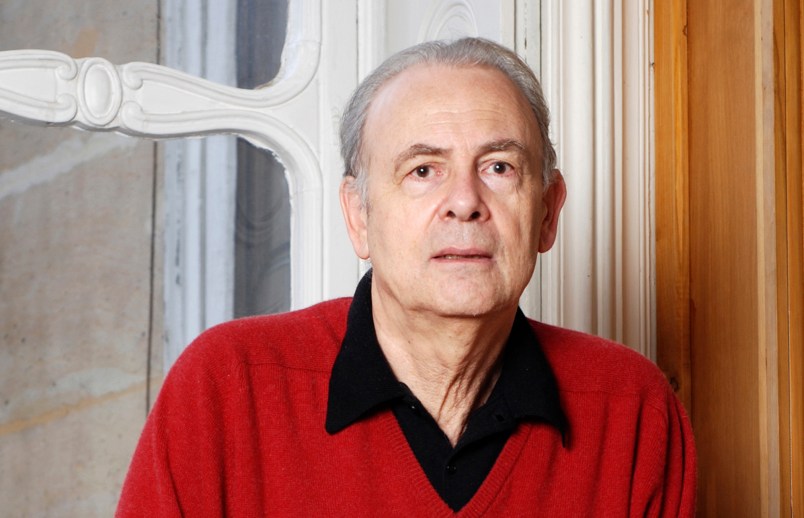STOCKHOLM (AP) — Patrick Modiano of France, whose work focuses on the Nazi occupation and its effect on his country, was awarded the Nobel Prize in literature Thursday.
The Swedish Academy gave the 8 million kronor ($1.1 million) prize to Modiano “for the art of memory with which he has evoked the most ungraspable human destinies and uncovered the life-world of the occupation.”
Modiano, 69, whose novel “Missing Person” won the prestigious Prix Goncourt in 1978 — was born in a west Paris suburb two months after World War II ended in Europe in July 1945.
His father was of Jewish Italian origins and met his Belgian actress mother during the occupation of Paris — and his beginnings have strongly influenced his writing.
Jewishness, the Nazi occupation and loss of identity are recurrent themes in his novels, which include 1968’s “La Place de l’Etoile” — later hailed in Germany as a key Post-Holocaust work.
Modiano owes his first big break to a friend of his mother’s, French writer Raymond Queneau, who first introduced him to the Gallimard publishing house when he was in his early twenties.
Modiano, who lives in Paris, is known to shun media, and rarely accords interviews. In 2012, he won the Austrian State Prize for European Literature.
Canadian writer Alice Munro won the literature prize last year.
This year’s Nobel Prize announcements started Monday with a U.S.-British scientist splitting the medicine prize with a Norwegian husband-and-wife team for brain research that could pave the way for a better understanding of diseases like Alzheimer’s.
Two Japanese researchers and a Japanese-born American won the physics prize for the invention of blue light-emitting diodes, a breakthrough that spurred the development of LED as a new light source.
The chemistry prize on Wednesday went to two Americans and a German researcher who found new ways to give microscopes sharper vision, letting scientists peer into living cells with unprecedented detail to seek the roots of disease.
The announcements continue Friday with the Nobel Peace Prize and the economics award on Monday.
As always, the awards will be presented on Dec. 10, the anniversary of prize founder Alfred Nobel’s death in 1896.
Copyright 2014 The Associated Press. All rights reserved. This material may not be published, broadcast, rewritten or redistributed.



